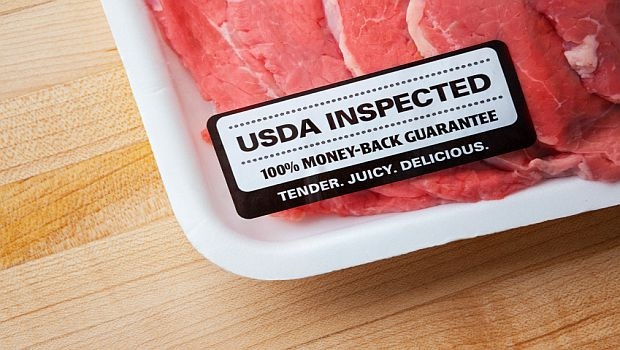USDA Requires Clearer Disclosures on Labels of Raw Meat, Poultry
Michael Jacobson, executive director of the Center for Science in the Public Interest (CSPI), said USDA has found that roughly “60 percent of all raw meat and poultry products are injected with or soaked in a salty solution that dilutes the products with water and pollutes them with sodium."

The U.S. Department of Agriculture (USDA) has published a rule that is aimed to let purchasers of raw meat and poultry know if the products contain added solutions such as sodium.
Adopted by USDA’s Food Safety and Inspection Service (FSIS), the final rule requires that raw meat and poultry products that contain added solutions and fail to meet a standard of identity describe the percentage of added solution as well as the ingredients in the solution. Products subject to the rule also are forbidden from using the word “enhanced" in the product name.
Michael Jacobson, executive director of the Center for Science in the Public Interest (CSPI), said USDA has found that roughly “60 percent of all raw meat and poultry products are injected with or soaked in a salty solution that dilutes the products with water and pollutes them with sodium."
“That sodium increases blood pressure and the risk of heart attacks and strokes," Jacobson said in a statement last month, commenting on USDA’s rule, which becomes effective Jan. 1, 2016.
In late 2010, before FSIS proposed changes to the labeling of products containing added solutions, the Truthful Labeling Coalition complained in a letter to a USDA official that it found misleading labels on chicken that contained 180 mg of sodium per serving, representing “four times the amount of sodium in truly natural single-ingredient chicken that has not been pumped full of saltwater."
The Federal Meat Inspection Act and Poultry Products Inspection Act requires that labels of meat and poultry products are truthful and not misleading.
FSIS said consumers who purchase meat and chicken with labels that don’t adequately reveal added solutions, such as high sodium content, could suffer unintended health consequences.
“More complete label information may help consumers make more informed decisions leading to an increase in consumer welfare," FSIS stated in the final rule.
And Jacobson is hopeful that the rule will encourage meat and poultry companies to compete based on including less salty content in their products.
“Consumers shouldn't be tricked into paying chicken (or pork or beef) per-pound prices for water and salt," he said.
About the Author(s)
You May Also Like






.png?width=800&auto=webp&quality=80&disable=upscale)